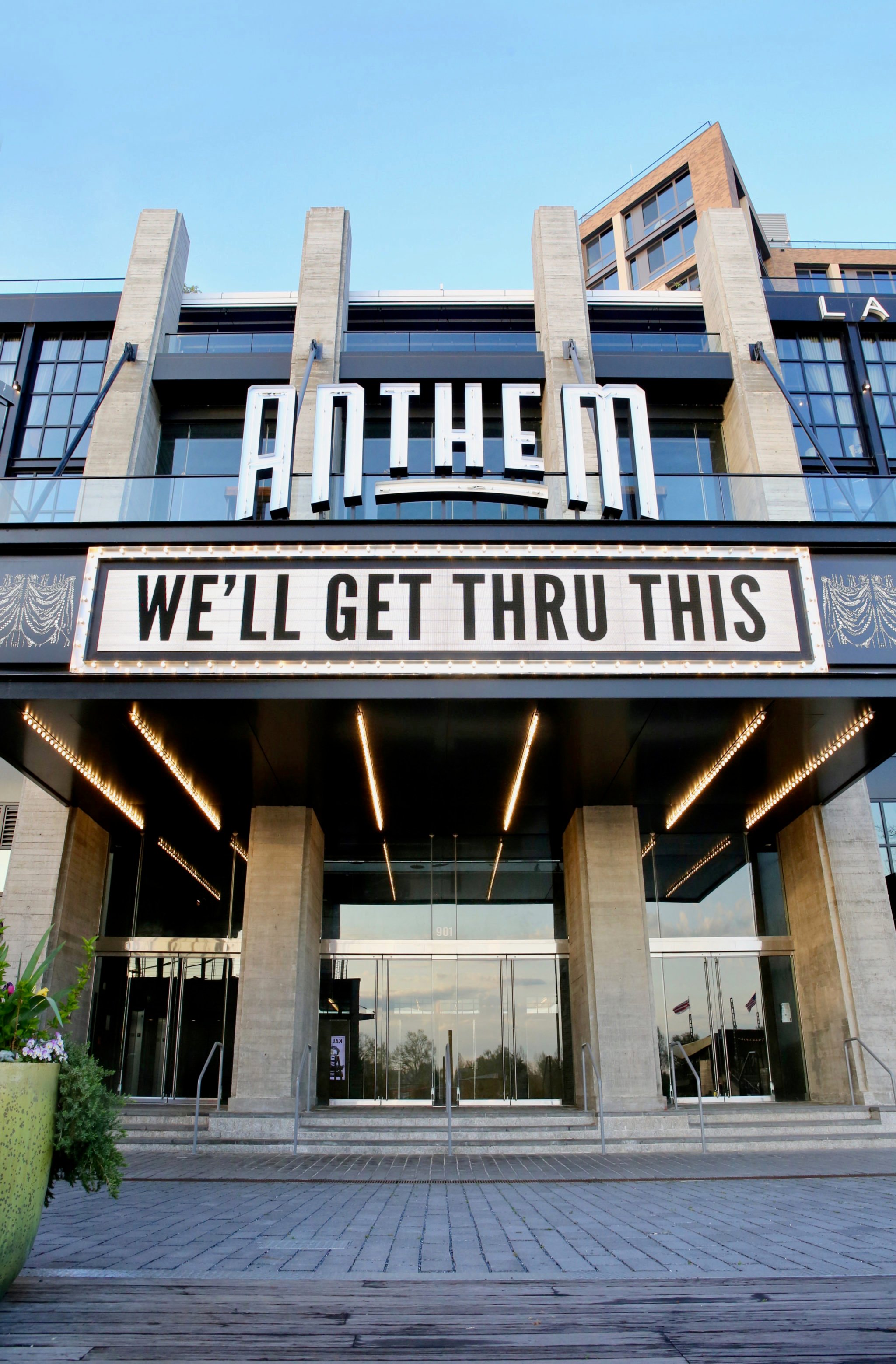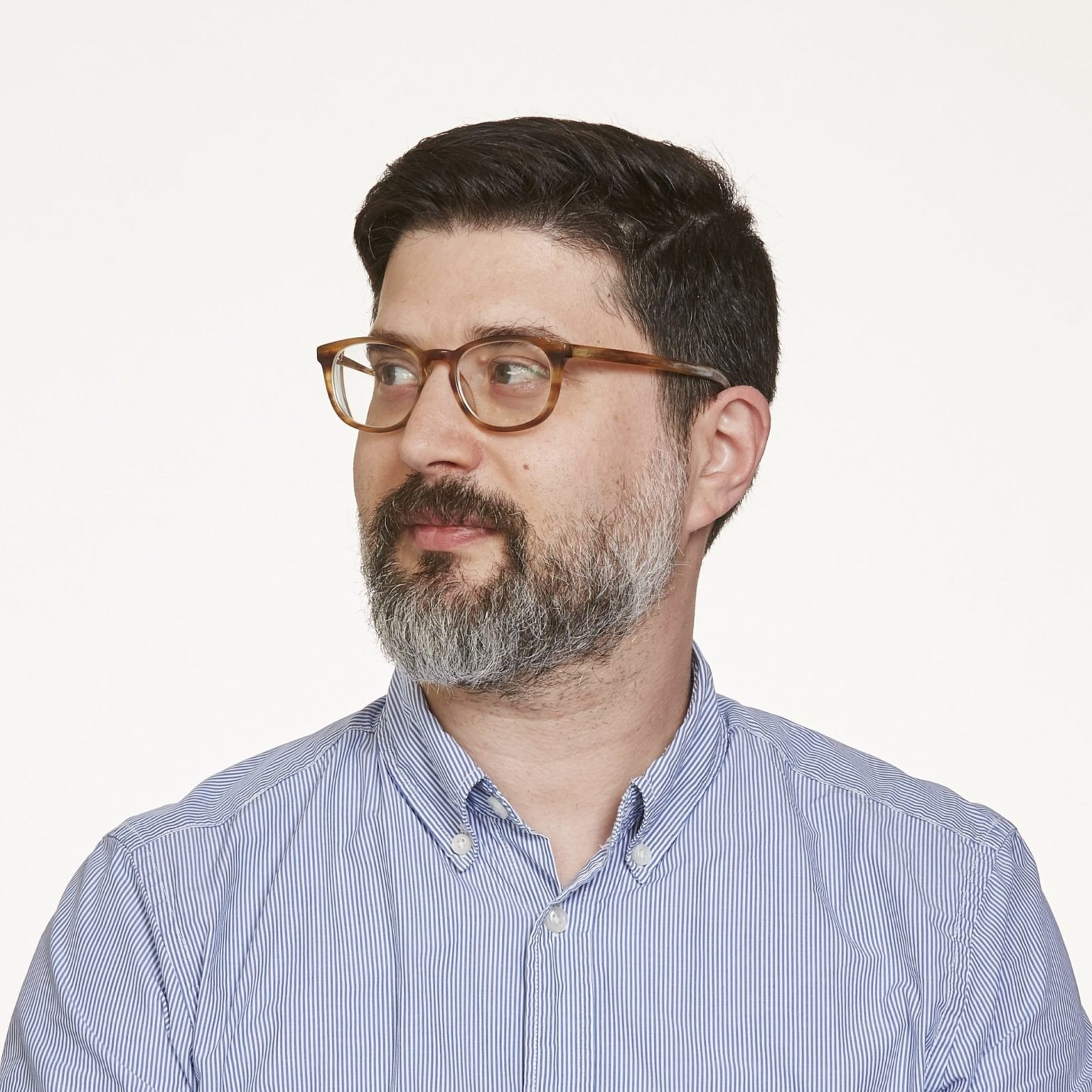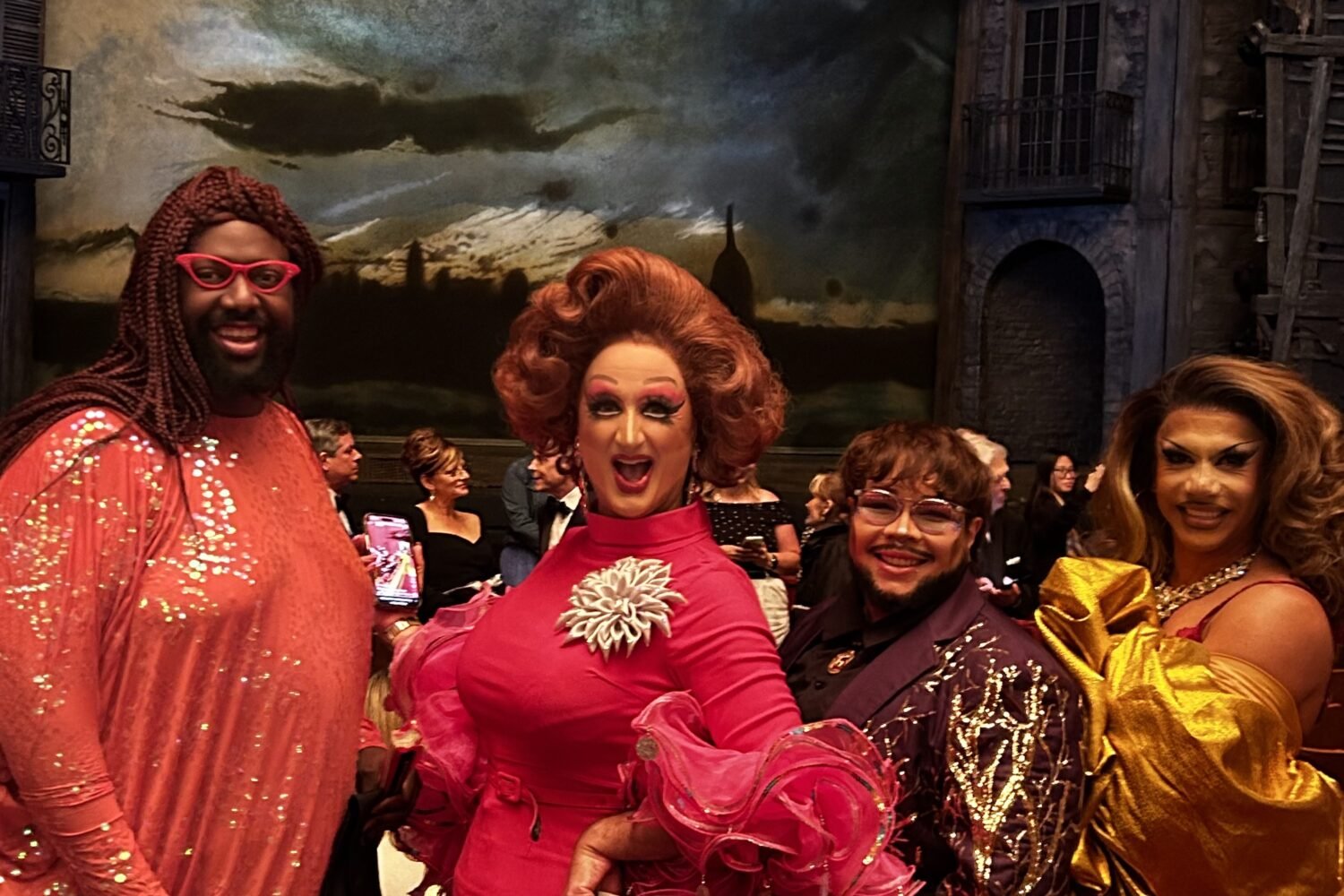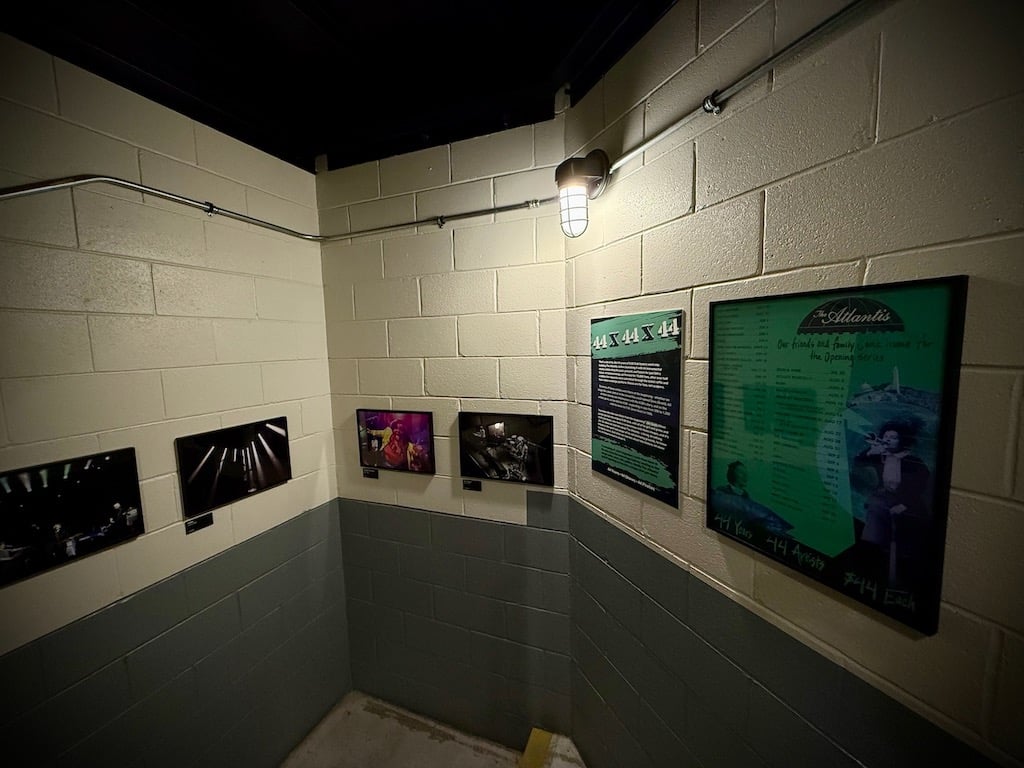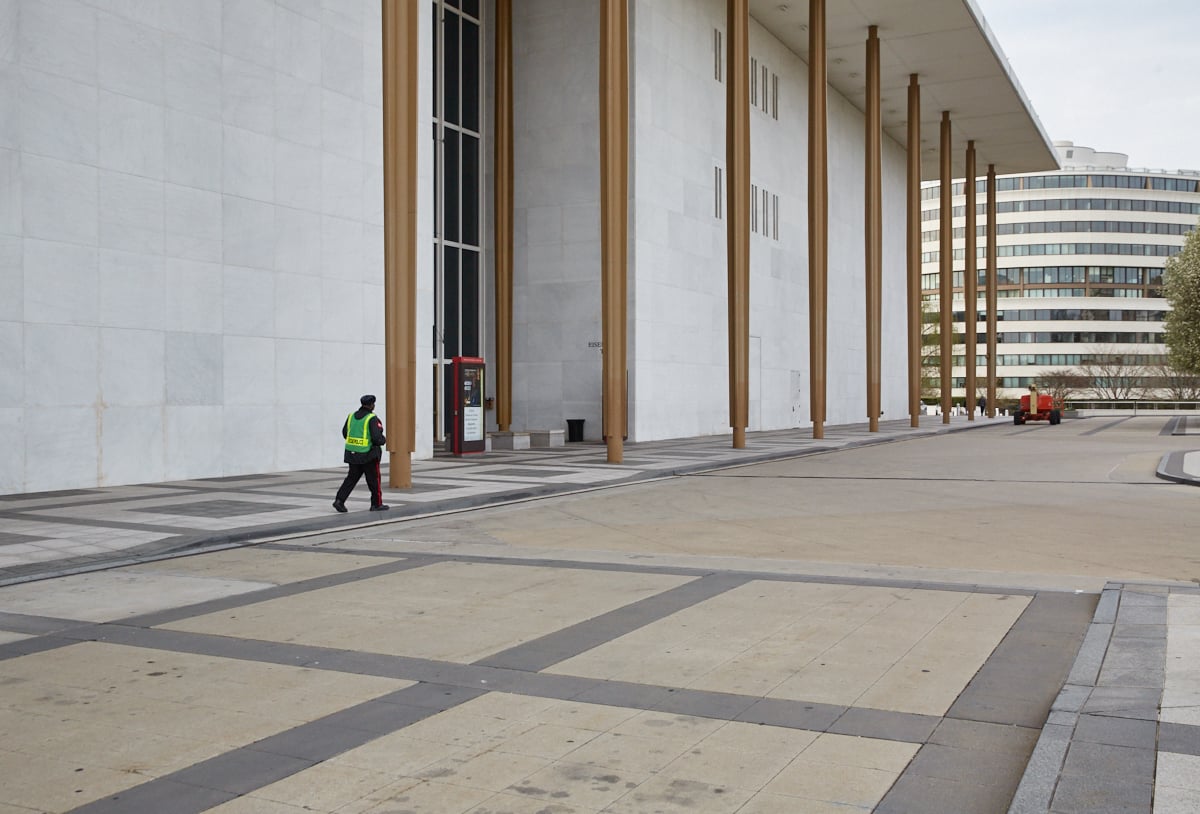The live-music industry has, for obvious reasons, been especially hard hit by the Covid-19 crisis. To find out what that’s been like and what happens next, we checked in with three key leaders in the area’s concert scene: Kennedy Center president Deborah Rutter, Washington Performing Arts president and CEO Jenny Bilfield, and IMP chief operating officer Donna Westmoreland, who runs the company behind venues such as the Anthem, the 9:30 Club, and Merriweather Post Pavilion.
What has it been like having to cancel everything and close down during the crisis?
Donna Westmoreland: It’s gut-wrenching and it is depressing. I’ve never felt an existential threat like this before. The entertainment business is amazingly resilient; even in economic downturns, people look to music to make them feel better. It’s a communal and shared euphoria, if you will, that people seek out. Everyone is feeling that absence so much now.
Deborah Rutter: It is devastating. The fact that so many of my colleagues are not at work [due to furloughs] and so many of our collective dreams are on hold is what’s really hard.
Jenny Bilfield: There was this pressure to be creative and to find a direction that perhaps might be viable for other organizations, but also to be really honest so that we’re not propping up something we can’t deliver. I felt like I was holding a lot of hopes and concerns very close. Every day required the focus and energy of big-problem solving over a long period of time with a great deal of consequence for a lot of people. And I felt that in every bone and cell of my body. I mean, it’s taken a lot of emotional and physical energy. I can’t overstate that. No matter how resilient you are as a leader, this tests every fiber.
Rutter: It’s a daily roller coaster. You think you’ve got a plan, you think you know what’s going to happen next, and then things change again. People talk about being bored, right? I keep thinking: Wouldn’t it be nice to be bored? [Laughs.] I’m not bored, that’s for sure.
Washington Performing Arts has announced that its next season will be entirely online.
Bilfield: We tried to figure out what we would be able to afford to do, recognizing that a digital approach would have digital-subscription revenue and that would never even begin to come close to in-person ticketed revenue. We had to look at what we thought we could raise to support this philanthropically. But there are things we can do that will sustain vitality through this period. We have to do less, we have to be leaner, we have to think differently.
Rutter: We have not pursued that as actively. I’m very excited to follow what they’re doing.
Westmoreland: When people say, “You can do a virtual concert or a drive-in concert,” these are not particularly viable alternatives [for IMP]. They’re a drop in the bucket as far as the revenue potential, as far as making a difference in our burn rate, what we [as a company] are going through in trying to stay alive. You try to be hopeful, and you don’t want to be particularly Grinch-like or a Debbie Downer. But they’re not really viable. They won’t get us to where we need to get, and that is being open, having shows, and figuring out what the new normal is going to look like. Hopefully, it eventually won’t look so dramatically different from what it was.
The Kennedy Center and IMP have canceled most events for 2020, but you’re both talking about doing some new, smaller-scale concerts in your larger spaces.
Westmoreland: There’s been a great deal of time and thought put into how that can be done safely and how the customers, the staff, the artists, will be comfortable and safe.
Rutter: Imagine a jazz trio or a single comedian or a string quartet, and put them perhaps on the Opera House stage with the audience sitting on the stage, where you can space apart from one another so you’re socially distanced. It may be that we also do some programs that we capture and share digitally, exclusively, for a period of time. We’re being very creative about what we might be able to do.
Westmoreland: The big question now is which artists are going to be able to take advantage [when venues reopen]. In our business, you don’t just decide to go on a tour. It’s almost a year in the planning before the tour actually happens.
What does the longer-term financial picture look like? Is it possible that, for instance, IMP venues might never reopen?
Westmoreland: No, I would severely doubt that. We’ve figured out how to get to 2021, and we’ve figured it out if, God forbid, we have to wait until maybe the second quarter of 2021. But the longer it is, the longer it will take for us to start to make money again. The impact of this will be years.
Rutter: It is a huge impact, obviously. We are, at the moment, in a close monitoring of cash flow. The amazing support we’ve had from donors and also from the CARES Act means we are scooting by carefully in this period of time.
What most people don’t understand is that the vast majority of the work we do loses money. The opera, the orchestra, the ballet, dance, all of our education programs—it takes contributed dollars [from donors] to support all of that work. To cancel some of it does mean that we lose the earned revenues [from parking and beverage sales and so forth] that go along with it, but it also means that some of your expenses go away as well. So it’s not like we’ll see a $45-million deficit for next year. But we’re having a hard time coming up with an operating budget for next year that looks good without some really, really painful decisions coming along.
What is giving you hope right now?
Rutter: I truly believe that artists and those of us who support artists provide a lens on who we are as individuals and as a society. This has challenged us more deeply than I have ever experienced. Certainly, 9/11 changed all of our lives. I believe that this will have as much, if not more, impact on the way we think about gathering as people, the way we cherish our experiences with one another. My fervent belief is that on the other side of this, we will cherish these moments and these experiences even more.
Bilfield: So many important moments in history have been captured by artists. The arts show that there’s resilience: There is every obstacle to creating art, and yet art is being created and art is being shared. Art is a portal into how we’re experiencing this.
Westmoreland: I read somewhere that Shakespeare wrote King Lear during an epidemic, so the hope is that we’ll come out of this with some great art, you know? People are writing music. And there’s going to be so much pent-up energy that hasn’t been expended in performance and in the receiving of performance. It should be pretty amazing.
These interviews, which have been edited and condensed, were conducted separately. This article appears in the August 2020 issue of Washingtonian.

